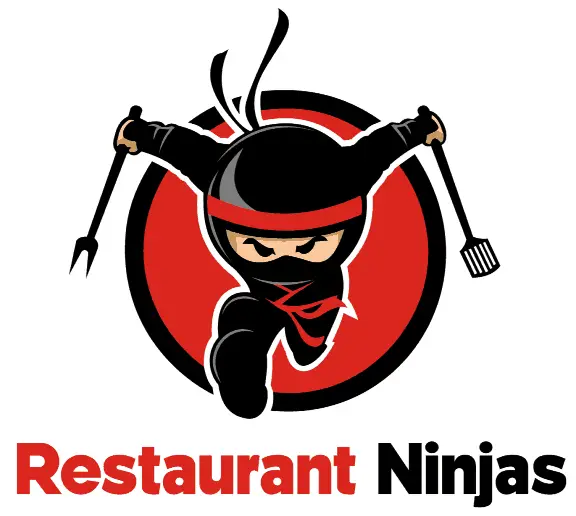This year on Father’s Day my wife decided to take me to my favorite restaurant the day after Father’s Day to avoid the typical crowds that come with the holiday. To our surprise, the place we tried to visit, a local fine dining Italian restaurant, was actually closed on Mondays. Considering the crazy life of a restauranteur often consists of 12-15 hour days 6-7 days a week, this got me thinking about whether or not it made sense for restaurants to close on Mondays (or any other day for that matter) versus staying open seven days a week.
Should you close your restaurant on Mondays? If you are able to reach your financial and personal goals for your restaurant being open less than seven days a week then yes, you should close on Mondays.
While “yes” is the easy answer the truth is that it depends on your specific situation. There are pros and cons to both reducing your operating hours by closing Monday’s and keeping your restaurant open seven days a week. Keep in mind that these same pros and cons also apply to close other days than just Monday. There are some very good reasons to close Mondays that can have a big impact on your restaurant’s operations. There are also negative impacts to consider.
Pro #1: The Chance for You and Your Staff to Have a True Day Off
If burnout is a pressing issue for you, this is probably the number one reason you are considering closing a day. In my mind, the most attractive part of being closed one day a week means that both you and your staff truly have one consistent day off. It’s a day that you do not even have to think about your restaurant. It’s a day that your staff can schedule appointments and events without having to worry about being scheduled or called and begged to work. To get this true day off, you are going to need to be a strategic planner and hyper-productive or you will just end up pushing non-service tasks to this day by default, defeating your purpose in reducing operating hours in the first place.
Imagine how much easier it would be to schedule your team if you only have to schedule for a six-day work week. Full-time employees could potentially work all six days, making it easier for you to have quality people on all days and shifts. This also means you will probably not have to hire as many part-time employees as you would cover days off in a seven day work week.
There is an indirect cost that you save by closing on Mondays that cannot be understated. The increase in morale (both of yourself and your employees) should far outweigh the money you lose from lost revenue. Of course, this is just my opinion, but after talking to many successful restaurant owners I am convinced that this is the case. We all know how hard the market is for quality employees and how important it is to keep the good ones happy, so anything you can do to differentiate yourself and stand out as an employer of choice will help you in the long run. The cost of recruiting, onboarding, and developing new employees is incredibly expensive. Retaining your employees could potentially save far more money than you would lose in lost sales.
Chain restaurants that are open seven days a week have the advantage of employing a rotating staff of managers so that everybody can get days off. When you’re starting out on your own and only have one location that might be harder to do while maintaining quality managers. Closing Mondays helps you close the gap on this advantage the big chain restaurants have.

One proponent I talked to about closing a day of the week was Vlad Moldoveanu, President and Founder of The Mediterranean Sandwich Company. His company, a local chain of four Mediterranean restaurants located in Southern Alabama, has been open since 2009. He believes that the lifestyle, health, and family time of his operators are more important than the few extra profit points (of being open seven days a week). Vlad’s company offers franchise opportunities and stated that some people he has worked with have considered closing on Sundays to be madness. After hearing from him, I think it is clear that his companies success has proved that there is some method to the madness.
I am a big fan of Stephen Covey’s “7 Habits of Highly Effective People”. The 7th Habit, “Sharpen the Saw”, talks about the need for continuous renewal, both personally and professionally. If the only way you can find time to accomplish this is by closing Mondays (or a different day), then I think the long term investment in yourself far outweighs the short term revenue.
“Sharpen the Saw means preserving and enhancing the greatest asset you have – you”
Steven R Covey
Pro #2: Raise Sales the Other 6 Days and Decrease Overhead
Some of the owners I talked with said that they actually feel like they saw an increase in sales on Tuesdays when they started to close on Mondays. They assume that a big part of this is that some of the customers who were going to go to their restaurant on Monday end up just going in on Tuesday. My example above is further proof of this: my wife ended up taking me to that Italian Restaurant for dinner on Tuesday since Monday was not an option (and I really wanted to go to that particular restaurant). For your biggest “raving fans”, this is probably all too common.
It also stands to reason that with closing one day of the week you going to reduce your overall expenses. You will not have to worry about the cost of utilities (electricity, gas, water, etc.) because you’re not going to be open. You’re probably going to have an increased usage on the other six days of the week if your sales increase as mentioned above, but consolidating the sales to one day allows you to be more efficient with your utilities. If I had to speculate, I think a 2%-4% decrease in overall utilities is a safe estimate.
Pro #3: Time to Complete Non-Service Tasks without Interruptions
If you insist on being in your restaurant all seven days of the week, closing a day still has its advantages. Being closed on Mondays would allow you time to complete numerous tasks in the restaurant without either interrupting or being interrupted by service. First, it gives you a chance to complete any major cleaning or repairs that are intrusive to operations. How great would it be to only complete major repairs and cleaning on the same day each week and be able to give it your full attention with zero interruptions or risk of underserving a customer?
If you’re in the building anyway, it makes sense to bring in a few preppers to get a head start on the week. This especially applies to those more time consuming tedious tasks like peeling potatoes.
One owner I talked with closes to the public on Mondays and uses the early part of the day for the various tasks listed above but actually opens for dinner service just for Fundraisers! What a great way to serve the community and offset the costs of being partially closed!
When you close Monday’s and instead use that day for non-service tasks, it allows you to be even more laser-focused on service and operations the other six days of the week.
Full disclosure: If you are going to close a day of the week, I think you should use it to recharge!
Con #1: Lost Revenue
Let’s talk about the elephant in the room. Closing on Mondays will result in lost revenue (at least in the beginning). There is no doubt that reducing your hours of operation will have an impact on sales. The question is how big of an impact it will be and whether that impact is worth the advantages that come with it? Not to mention the fact that you cannot put a price on your own sanity…
Con #2: Opportunity Cost
There are some opportunity costs associated with reducing hours that might not be evident upon first glance. For example, if you close Mondays, at least some of your share of the market is going to go somewhere else that night. The more restaurants that choose to close Mondays will continue to increase the market share of those that remain open.
It is also important to think about your occupancy cost. You might not be open seven days a week but you will still be paying the occupancy costs 24/7/365. For some owners, this alone is a reason not to reduce hours.
Con #3: Disappointed Customers
One of the cons that many owners mention when they talk about closing on Mondays is disappointing their customers. There’s no doubt that you will see some disappointed customers. Heck, I was one of them a few weeks ago when I tried to enjoy my Father’s Day dinner! The fact is though that most customers will get over it eventually no matter how unhappy about it they are initially. Most will understand that it is necessary in order for them to continue to enjoy the level of hospitality you provide.
One Size Does Not Fit All
In the end, this is truly a case-by-case decision that comes down to whether the pros outweigh the cons. If you’re struggling with having any sort of personal life and you feel yourself being burned out it probably makes sense to close Mondays if you can afford the initial financial hit. On the other hand, if you feel that you’re not stretched too far and your goals are aggressive growth, it might make sense to stay open as much as possible and build your brand. It truly is a personal decision.
Consider Chic-Fil-A. They have managed to build an empire while consistently being closed on Sundays, one of the busiest days of the week. This at least proves that it is feasible to create a food service business model that operates at a high level and is financially successful on a national scale while growing at a rapid rate.
I think that it is wise not to underestimate how important quality of life is to the generation currently entering the workforce. Having a set day off, as I mentioned above, is more important to our employees than many of us realize. As more Millennials join the workforce and the pool of quality employees continues to shrink, restaurants are going to have to find new creative ways to be a place where people want to work. This could be one of those opportunities.

